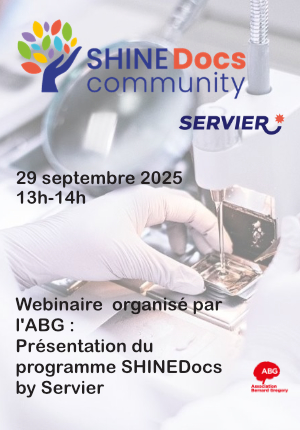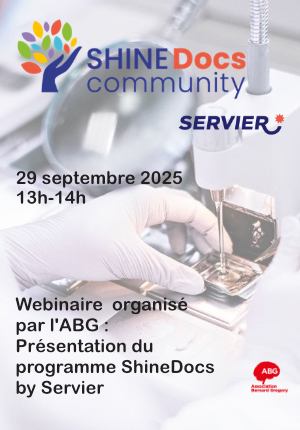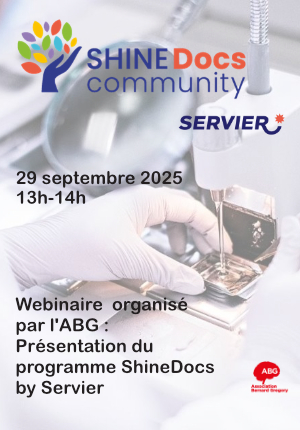Master 2 internship: Regulations of splicing factor U2AF2 in normal and cancer cell
| ABG-132849 | Stage master 2 / Ingénieur | 6 mois | 577.50 euros |
| 10/07/2025 |
- Biologie
- Biochimie
- Biotechnologie
Établissement recruteur
Site web :
Le stage M2 se déroulera au sein du laboratoire « Structure – Activité des Biomolécules Normales et Pathologiques » (U1204 de l’INSERM) situé à l’Université d’Evry. Cette unité de recherche utilise des techniques innovantes de biologie moléculaire, de microscopie et de biologie cellulaire pour identifier et caractériser les mécanismes impliqués dans la formation et les fonctions des complexes macromoléculaires et leurs déficits associés notamment aux maladies neurodégénératives et au cancer.
Description
Splicing is a key step in RNA maturation during which intervening sequences (introns) are deleted to produce mature RNA [1]. It is an essential step in gene expression. Furthermore, alternative splicing is the basis of numerous regulations and generates a proteome complexity specific to each cell type.
Defects in RNA splicing generally have severe consequences for protein expression and are associated with numerous genetic diseases and cancers. Indeed, mutations in RNA sequences recognized by the splicing machinery (the spliceosome) are frequently the cause of genetic diseases. Furthermore, mutations in splicing factors are associated with the development of multiple cancers [2]. However, the mechanism of splicing and its disease-associated defects are still poorly characterized.
Splicing defects associated with cancer most often affect the initial step of spliceosome formation, during which splice sites are determined [3]. This step involves a complex network of interactions between different splicing factors. Among these factors, U2AF2 plays a central role.
Our team recently demonstrated that U2AF2 acts cooperatively and forms macromolecular complexes, thus enabling the recognition of specific RNA sequences in pre-messenger RNAs [4].
Furthermore, using in vivo labeling technics, we have identified a set of novel proteins interacting with U2AF2. In this context, the internship project will aim to characterize these interactions and their implications in the control of U2AF2-dependent alternative splicing and in cancers.
This internship will be carried out within the "Molecular Interactions during Spliceosome Assembly" team, whose work aims to understand the molecular interactions that guide the recognition of pre-messenger RNA splice sites. For these studies, we implement biochemistry, molecular, and cellular biology techniques, combined with bioinformatics analyses of transcriptomes.
The team is part of the SABNP laboratory, which specializes in the study of RNA-protein interactions involved in gene expression.
1 Wilkinson ME, Charenton C & Nagai K (2020) RNA Splicing by the Spliceosome. Annu Rev Biochem 89, 359–388.
2 Scotti MM & Swanson MS (2016) RNA mis-splicing in disease. Nat Rev Genet 17, 19–32.
3 Bonnal SC, López-Oreja I & Valcárcel J (2020) Roles and mechanisms of alternative splicing in cancer - implications for care. Nat Rev Clin Oncol 17, 457–474.
4 Tari M, Manceau V, de Matha Salone J, Kobayashi A, Pastré D & Maucuer A (2019) U2AF65 assemblies drive sequence-specific splice site recognition. EMBO Rep 20, e47604.
Profil
Candidate profile: molecular biology, cell biology, biochemistry, or bioinformatics.
Prise de fonction
Vous avez déjà un compte ?
Nouvel utilisateur ?
Vous souhaitez recevoir nos infolettres ?
Découvrez nos adhérents
 TotalEnergies
TotalEnergies  Groupe AFNOR - Association française de normalisation
Groupe AFNOR - Association française de normalisation  Aérocentre, Pôle d'excellence régional
Aérocentre, Pôle d'excellence régional  SUEZ
SUEZ  Laboratoire National de Métrologie et d'Essais - LNE
Laboratoire National de Métrologie et d'Essais - LNE  Nokia Bell Labs France
Nokia Bell Labs France  Généthon
Généthon  CESI
CESI  ASNR - Autorité de sûreté nucléaire et de radioprotection - Siège
ASNR - Autorité de sûreté nucléaire et de radioprotection - Siège  Institut Sup'biotech de Paris
Institut Sup'biotech de Paris  ANRT
ANRT  ADEME
ADEME  ONERA - The French Aerospace Lab
ONERA - The French Aerospace Lab  Tecknowmetrix
Tecknowmetrix  MabDesign
MabDesign  Ifremer
Ifremer  CASDEN
CASDEN  MabDesign
MabDesign  PhDOOC
PhDOOC





